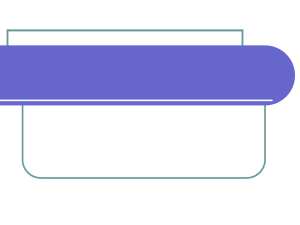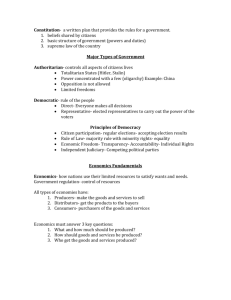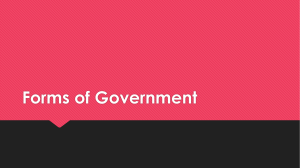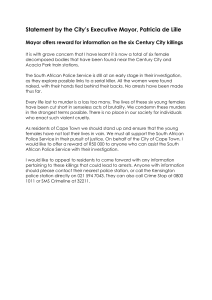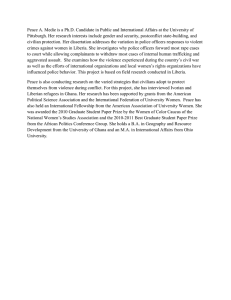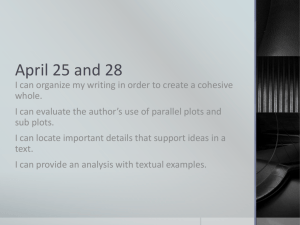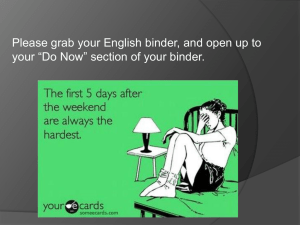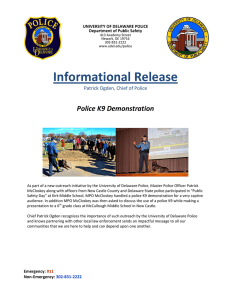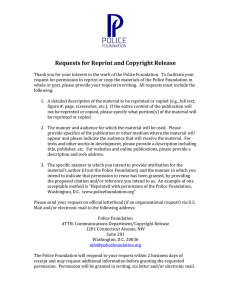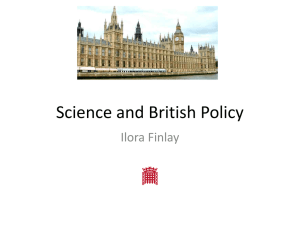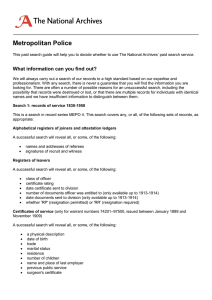Ch.1, Les. 4 Notes Powerpoint
advertisement
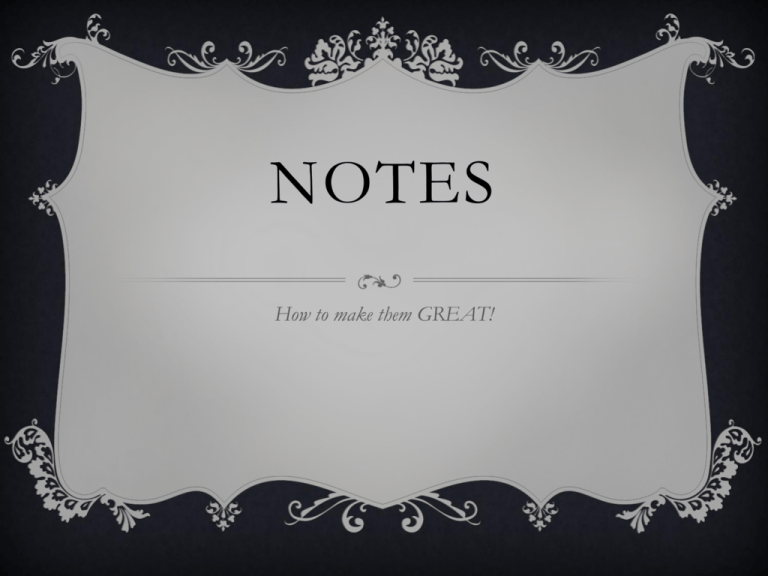
NOTES How to make them GREAT! YOUR NOTES SHOULD… Tell you the main idea of text Give you an idea of chronology if that is important to the topic ALWAYS include the date and section of reading Be organized (outline)- can use roman numerals or not. Not include abbreviations unless you are POSITIVE you will remember them Make sense to you. MORE TIPS When you are done, review your notes to make sure that you understand them Sketch any important timelines, charts, etc. that you think are important to understanding the information Pay attention to repeated ideas and words CHAPTER ONE, LESSON FOUR F O R M S O F G OV E R N M E N T Functions of government • Keep order • • Pass and enforce laws to deter crime and prevent conflicts. Establish courts. Help resolve issues between citizens. Know what the words mean! • Provide security • • Establish armed forces Protect citizens from foreign attacks • Provide services • • Libraries, schools, hospitals, parks Protect public safety, health, and welfare. Ex. Police and fire, safety of products, mandate vaccines, aid to the poor and disabled. • Guide the community • Use financial resources to make public policy, manage the economy, and conduct foreign affairs. Levels of gov. Federal system of gov. = power divided between federal government and the states State gov can’t make laws that goes against national gov. Fed. Gov. in charge of… citizenship, make and enforce laws for whole country State gov. in charge of… education, elections, public safety Local gov. in charge of… police and fire, local courts, street cleaning You don’t have to use complete sentences! Be Organized! It makes notes easier to review! Types of Government Democratic Representative democracy- citizens choose people to represent them and make laws on their behalf (US has the oldest) Republic- citizens have a role in choosing who leads the country Constitutional monarchy- monarch has limited role, often just ceremonial. Voters elect lawmakers and leader of country. Majority rule- majority has power to make laws that everyone else follows Principles of American Democracy Rule of law Limited government Consent of the governed Individual rights Representative democracy Free, fair, and competitive elections Majority rule Authoritarian- power is held by a person or a group not accountable to the people Autocracy- ex. Absolute monarchy. Not many in the would. Saudi Arabia, Qatar. Dictatorship- complete power. Come to power by force. Rely on police and military. People do not have freedom. Ex. North Korea, Turkmenistan Totalitarian rule- gov. controls almost all aspects of life. Tell people what they can believe and do. Control the media and use scare tactics. Often based on an ideology = strict idea about life and society. Ex. Nazi Germany under Hitler, Fascist Italy under Mussolini, and Soviet Union under Stalin. Today, Cuba, North Korea, Myanmar. Can include oligarchies (rule by a small group of people) and theocracies (rule by religious leaders). Socialism- system in which society controls all aspects of the economy, either directly or indirectly through the government. Goal is for nation’s wealth to be more evenly divided. Systems of gov. Most governments around the world are not federal, but unitary = central government is supreme. France, Japan. THE END
